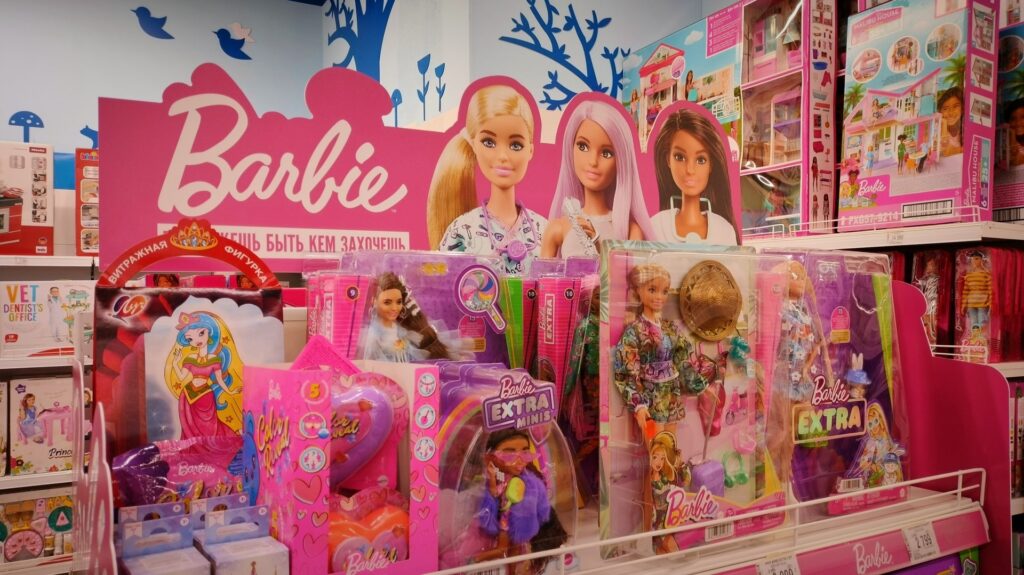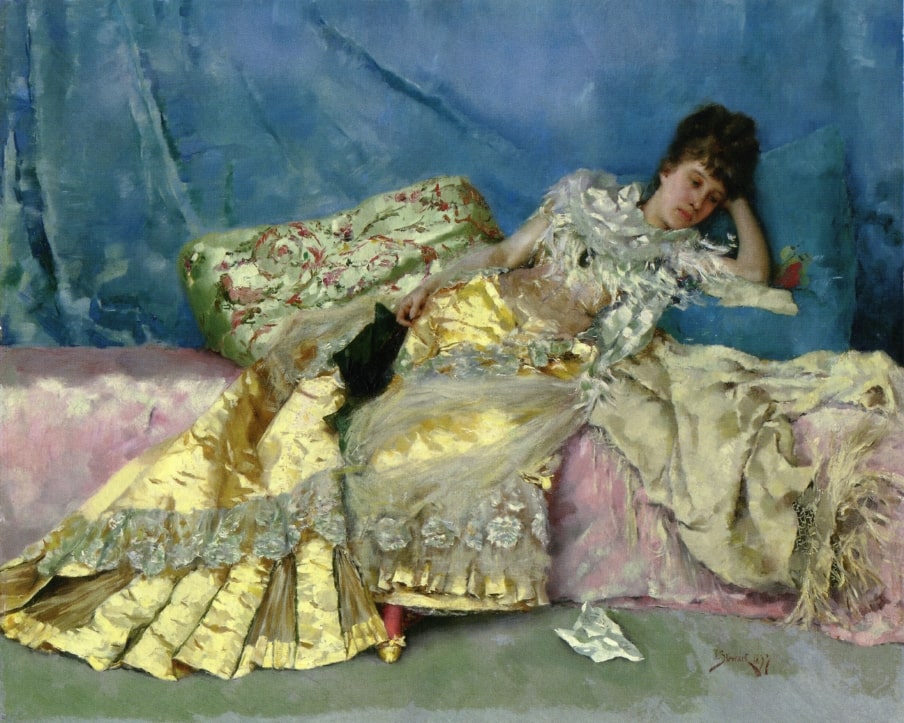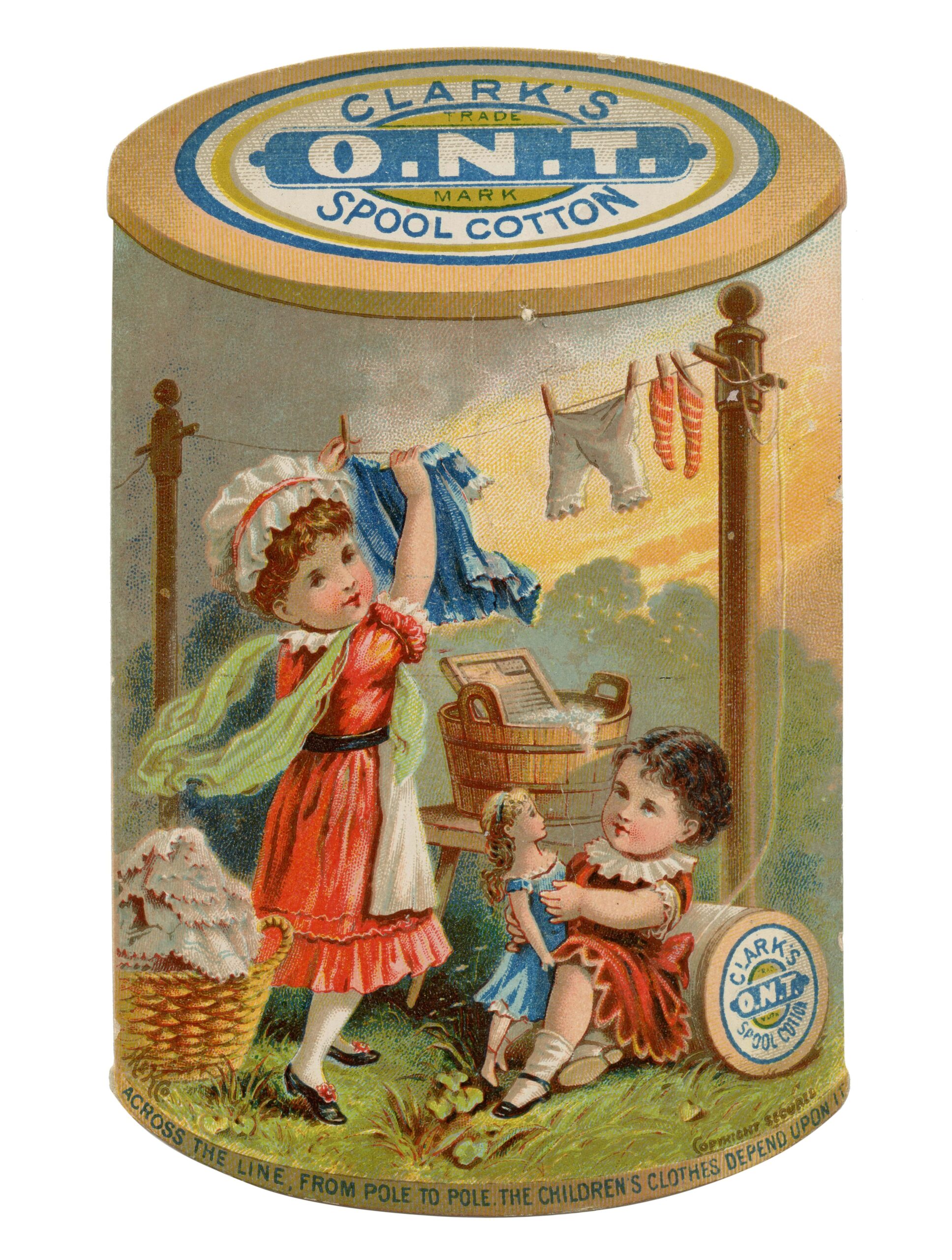Barbie starts with Helen’s voice echoing from the sky, a voice that filled my heart with subliminal joy. All of a sudden, I was reminded of all the Disney movies I used to watch as a kid. Later, when I would ask my brother what it was he didn’t like about the movie, his reason made my heart race with wonder. The same thing which made him dislike the movie was what I loved: it reminded me of my childhood.
On each of our birthdays, whenever someone would ask my sister and me what we wanted for our gifts, Barbie dolls used to be on the tip of our tongues. We fought over them passionately and it usually ended with me stealing my sister’s doll’s shoes. When Barbie fell down after her feet turned flat, it amazed me.
Symbolism and Identity Amidst Shared Memories
I am not sure how many of you ever possessed a Barbie doll, but I did, and I can tell you that Barbie dolls can’t stand straight without support, especially without their footwear. Their feet are just not built to stand by themselves. They were always meant to fly. I loved how realistic that scene looked. For once, I smiled at someone’s downfall.
Another thing I love is how Greta and Noah pulled off writing one-liners that were overlaid with other dialogues and yet, they still managed to make an impact that could have easily gone unnoticed. For instance, when Barbie visits weird Barbie for the first time, she says how if she had feet like these for real, she would never wear heels. I was flabbergasted. In our world, where everyone has flat feet, heels are worn all the time. It’s painful and it’s unbearable.

But we still do it because it makes us “look” like a doll. And the fact that ‘Barbie’, who we consider “perfect” wouldn’t wear heels if she had feet like ours– while we try to be like her and make ourselves feel miserable when we can’t have that figure, or when we can’t have thighs without a hint of cellulite, or when we can’t have that perfect glass skin blew my mind.
Yet another one-liner that went by like a swirl of wind is when Barbie asks to speak to the CEO of Mattel, expecting a woman obviously, and Aaron Dunkins says since he holds no power of authority, can he be considered as one? It made me crack up! Because one: timing. And two: the sheer realisticness of it. The fact that Adam from “Sex Education” was saying it made it even funnier for me.
Honesty and Love in Filmmaking
In an interview with ABC, Margot shares how she went to Mattel with the idea of Barbie as a movie, “We assure you, we want to honor the brand, but we have to be upfront and let you know that we are not gonna shy away from the problematic part of this, otherwise, it’s not a movie we are interested in making, but it will come from a place of love”.
My admiration for Greta and Noah has increased after watching Barbie. There were a million things in the script that could have gone wrong and yet they somehow managed to pull it off beautifully. Quoting Greta and Margot from the same interview, “We are poking fun at ourselves, Mattel is a character, it’s gonna poke fun at itself, we are going to be self-aware and that is the access point but when we deliver that, we’re gonna deliver it from the place of love”.
I loved how self-conscious everyone was in this movie, except maybe Barbie during the first half. And how all that was turned around by Sasha with her words. That’s when reality slaps back. I also loved how they showcased the capitalistic approach of Mattel while also pointing out the lack of purpose of the Ken dolls, well, except for being with/or for Barbie that is– addressing everything positive and negative without justifying either.

The day after I watched Barbie, still processing my thoughts on it, I went on Letterboxd to log it. I don’t like rating movies that make me weep, Barbie being one of them, as they deserve nothing but a heart from me. While I was reading this review from a friend, there was something I truly felt while watching the movie and it’s startling how he was able to get that feeling into words: It’s moments like these where Gerwig’s presence is felt.
Moments of Emotional Resonance
There’s a scene in the movie where Barbie sits on the bench of a bus stop to clear her mind while Ken learns about patriarchy. She sees a vision of a girl growing up, a girl who goes from playing with Barbie dolls to abandoning them as she enters adolescence. And when Barbie opens her eyes, she realizes she’s crying for the first time.
She ponders on how nice and painful it feels. And I just sat there, also thinking of how nice and painful growing up really is. We abandon a lot of things as we grow up, things we used to love when we were kids. It made me think of how we grow layers of insecurities around us, successfully hiding our true selves.

Later, there’s a scene where Barbie’s eyes move to an old lady sitting beside her at that bus stop, reading a newspaper. She simply watches this woman for a moment, probably because she’s never seen someone as old as her in Barbie Land. And when she calls the old lady beautiful, the old lady replies, “I know”.
This was the first time I sobbed during the film: when Barbie really looks at people being with other people in all of their humanness, just feeling and conversing, her taking it all in. The over-layering of each scene turned into a key that opened the doors to my heart with such speed that it became overwhelming.
Creating From the Heart
About this scene, Greta says that “The idea of a loving God who’s a mother, a grandmother – who looks at you and says, ‘Honey, you’re doing OK’ — is something I feel like I need and I want to give it to other people”. When it was suggested that this scene, which Greta calls a “transaction of grace”, might be cut for time, she remembers thinking, “If I cut that scene, I don’t know why I’m making this movie. If I don’t have that scene, I don’t know what it is or what I ‘ve done.”
Barbie isn’t my favorite Greta Gerwig movie, but she managed to create yet another beautiful world, one which I truly adore. And the best part? It felt like an ode to my childhood.


